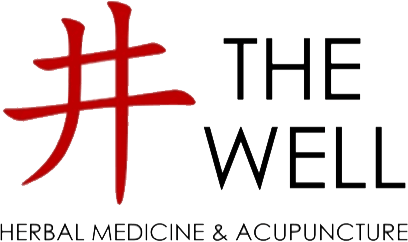WHAT IS CHINESE HERBAL MEDICINE?
Chinese herbal medicine is part of the larger healing system known as Traditional Chinese Medicine or TCM. Herbs are prescribed to restore balance to the Qi, Yin and Yang energies that run through the body. In modern biomedical language, this can be translated as a return to hormonal balance of the body i.e. progesterone/testosterone - oestrogen or cortisol - melatonin equilibrium.
Herbal medicines harness the interactions between different compounds found in herbs to treat illness. Herbs can act on the body as powerfully as pharmaceutical drugs and should be treated with the same caution and respect.
Herbs have been part of Chinese healthcare for centuries and the approach is used in the UK and throughout the world. Nearly 500 different plants are used in Chinese herbal medicine - including roots, stems, flowers, leaves and barks, alongside some plant-base materials, such as resins.
WHAT DOES IT INVOLVE?
Before prescribing Chinese herbal medicine, we will make a comprehensive assessment of your general health, including diet and lifestyle factors, your medical history and any symptoms or issues you wish to address. As part of the Chinese medical diagnosis, we will also look at your tongue and take a reading of your pulse.
At the end of this assessment, we will be able to establish if Chinese herbal medicine is suitable for you and what to expect in terms of improved symptoms. We will then prescribe a bespoke blend of Chinese medicinal herbs to address the health issues raised, which normally includes between 5-20 different herbs. Each patient and condition is different, so our herbal prescriptions are highly tailored to meet your individual needs.
WHO IS IT FOR?
Chinese herbal medicine is suitable for anyone looking for a natural way to restore their health and well-being. You will always be asked for a list of any medications or supplements you are taking so we can advise you on appropriate treatments.
HOW DO YOU TAKE THE HERBS?
Chinese medicinal herbs are usually prescribed to be taken orally on a daily basis, but some are available as granulated extracts or as dried whole herbs. With dermatological issues such as eczema or for painful muscoskeletal conditions such as arthritis, herbs may be prescribed for external use as a poultice or bath soak.
WILL THERE BE ANY SIDE EFFECTS?
Side-effects are uncommon in Chinese herbal medicine if you follow the prescribed dosage. However, as your body adjusts to the herbs, you may experience minor digestive issues such as temporary nausea or changes to bowel movements. If this occurs, it’s important to rest and stay hydrated until the issue passes – usually within a day or so as your body rebalances itself.
WHERE DO THE HERBS COME FROM?
All of our herbs are plant-based and are free from animal products. We only use herbs from suppliers approved by RCHM.
IS CHINESE HERBAL MEDICINE SAFE?
As a fully-trained practitioner licensed by the Register of Chinese Herbal Medicine (RCHM), we only prescribe quality-assured Chinese herbal medicines from RCHM-approved suppliers. These suppliers must reach certain industry standards and demonstrate that the herbs are manufactured according to Good Manufacturing Practice (GMP) standards. This ensures that our patients only ever receive safe herbal medicines of the highest quality.
SKIN DISEASE
Eczema, dermatitis, psoriasis, acne, rosacea, urticaria (hives), lichen simplex, lupus erythematosus, vitiligo, fungal and yeast infections, bacterial and viral disease such as herpes simplex, impetigo, polymorphic light eruption (sun allergy), etc.
AUTO-IMMUNE CONDITIONS
Hay fever, asthma, thyroid disease such as Grave’s and Hashimoto’sdisease, myasthenia gravis, Sjogren’s syndrome, multiple sclerosis, ulcerative colitis, Crohn’s disease, Irritable bowel syndrome (IBS).
BOOK YOUR
APPOINTMENT NOW
Please contact us if you have any questions
or to book an appointment.
GYNEALOGICAL & OBSTETRICS
Pre-menstrual syndrome, painful periods, endometriosis, abnormal uterine bleeding, infertility, polycystic ovary syndrome, habitual miscarriage, fibro-cystic, morning sickness, insufficient lactation (breast milk), post-natal depression, post-natal weakness and debility.
PSYCHOLOGICAL DISORDERS
Stress, anxiety, depression, insomnia, Bi-polar disorder, fatigue, emotional instability (anger, irritability, frustration, worry)

